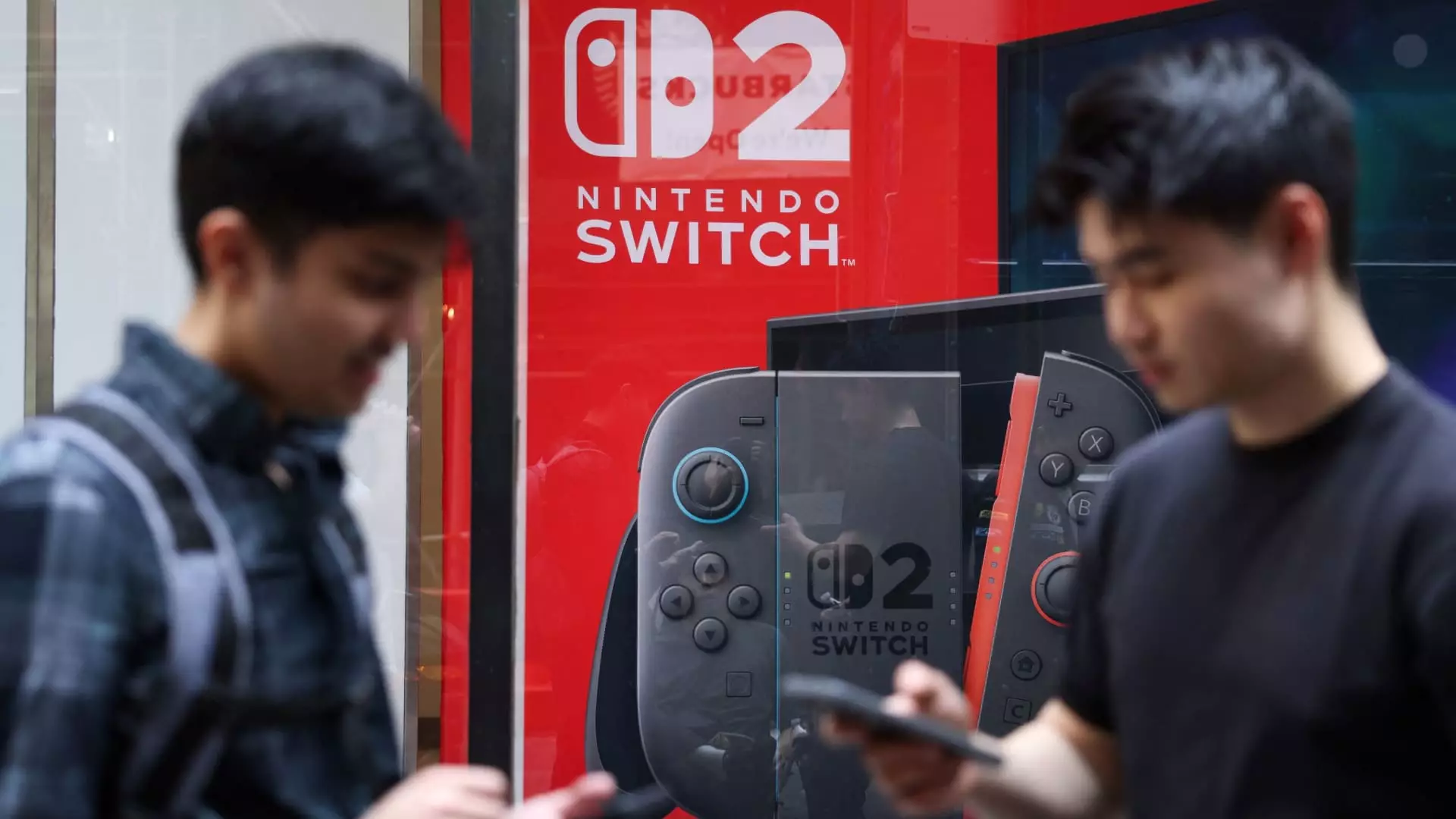On Thursday, a seismic shift rocked the gaming landscape with the launch of Nintendo’s Switch 2. Expectations soared as fans rallied, leading to late-night store openings and an unexpected shortage in various markets. This isn’t just another console release; it’s a transformative moment that has the potential to redefine gaming culture. The fervor surrounding the Switch 2 is not simply about gamers wanting the latest tech; it represents a cultural phenomenon where video gaming is interwoven with modern lifestyle, economic aspirations, and pure entertainment.
Nintendo’s Ambitions: A Legacy to Uphold
Nintendo, a titan in the gaming industry, is capitalizing on its momentum to release a console that not only aims to replicate the astonishing success of its predecessor but also endeavors to elevate the company’s legacy. Since the original Switch’s release in March 2017, Nintendo’s market shares have nearly quintupled—a remarkable success by any measure. The original Switch is not just a piece of technology; it has captured the hearts of over 152 million gamers and paved the way for a new generation of portable home consoles.
The pressure is palpable for the Switch 2. Analysts have reported unprecedented demand, with George Jijiashvili, a senior principal analyst, dubbing it “the biggest console launch of all time.” Such labels foster an environment ripe for speculation but also highlight the immense stakes for Nintendo. The company appears to be leveraging its popularity not merely for profit but as a catalyst for a broader cultural dialogue about work-life balance and play.
Demand Dynamics: More than Just a Trend
The demand for the Switch 2 has reached staggering levels, so much so that Nintendo’s President Shuntaro Furukawa indicated that 2.2 million hopeful buyers in Japan entered a lottery for the chance to purchase the console. This astounding figure speaks volumes not only about the product’s allure but also about what it signifies: an escape from the mundanity of daily life to realms of creativity and adventure. The persistent shortages in Japan seem to compound this emotional investment, feeding a frenzy that stretches well beyond mere supply and demand—it’s about participation in a collective experience, a cultural celebration of gaming.
Conversely, reservations from major online retailers in China amassed to a striking 400,000—a number that may seem excessive yet reflects a burgeoning market hungry for innovative entertainment. The only real question is whether supply can keep pace with this burgeoning demand. As we watch the frenzy unfold in the U.S. and U.K., it is obvious that Nintendo has struck a chord that many in the industry have overlooked.
A Global Phenomenon: Geographical Variances
Interestingly, the availability of the Switch 2 differs vastly from one market to another. While retailers in the U.K. are more agile in maintaining stock levels, U.S. consumers faced a different reality. Situated in the eye of the storm, Best Buy’s midnight openings in select locations reflected the console’s high stakes. Yet Walmart’s online platform indicates a different kind of chaos, with sold-out statuses appearing almost instantaneously. This divergence in availability encapsulates the notion of gaming as a socio-economic artifact: what one region can access quickly, another is left scrambling.
That said, the anticipation is not merely driven by the hardware itself, but by the experiences it promises to deliver. As players envision themselves in fantastical landscapes, the lines between user and technology blur, fostering deeper social connections and stimulating dialogues—both online and offline.
Expectations vs. Reality: The Next Frontier
As Nintendo sets its sights on selling an ambitious 15 million units of the Switch 2 within the fiscal year ending March 2026, some analysts are quick to label those projections as modest. Kantan Games’ Serkan Toto boldly predicts that sales will soar to around 20 million units. The anticipation among gaming enthusiasts may well indicate that those estimates are not just wishful thinking; they are likely grounded in a market that thrives on nostalgia and innovation alike. Omdia forecasts indicate sales exceeding 14.4 million consoles in just the year following the release—an achievement that could upend the gaming landscape entirely.
The Switch 2 encapsulates the belief that gaming is more than just a pastime; it has emerged as a significant facet of culture, driving economic value while igniting passions. As we witness a new era of gaming unfold, one thing remains clear: Nintendo isn’t just in the business of selling consoles; it’s providing connection and community, turning everyday moments into extraordinary experiences.

